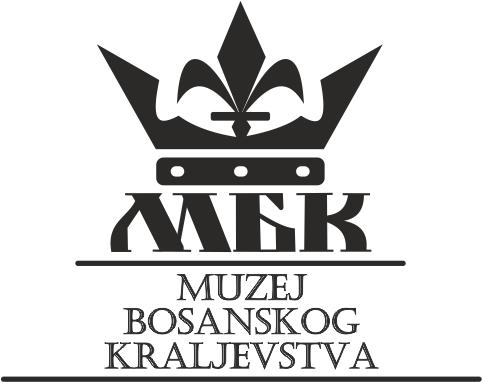Vukoslav Vlatković (XIII century – after 1357) was the son of Prince Vlatko Vukoslavić and the grandson of Prince Vukoslav Hrvatinić. He appears only once in historical sources, in a very dynamic episode from the beginning of Ban Tvrtko’s reign. Namely, in 1357, the brothers Pavlovići, Grgur and Vladislav, sons of Prince Pavle Hrvatinić, decided to place themselves under the supreme authority of the Hungarian king Louis I of Anjou and thus committed treason against their ruler at that time – the Bosnian ban Tvrtko. On that occasion, Grgur and Vladislav ceded the town of Greben, which they had ruled until then, to the Hungarian king in exchange for the possession of Dobra Kuća in Slavonia. In that regard, the Hungarian king issued a charter by which he exempted the Pavlović brothers from Bosnian rule and placed them under his supreme sovereignty. In this way, a part of the noble family Hrvatinić was exempted from the ruling dynasty, which undermined the power of Ban Tvrtko, which was the final goal of the Hungarian side, to weaken the power of the Bosnian ruler by attracting local powerful people under their wing.
The above-mentioned events seriously shook another member of the Hrvatinić family – Vlatko Vukoslavić, who was worried that he might suffer consequences due to the actions of other members of the noble family to which he belonged. For this reason, Ban Tvrtko, together with his mother Jelena and his brother Prince Vuk, issued a charter in 1357 to Vlatko Vukoslavić and his descendants, among whom the son Vukoslav was the only one mentioned by name, where guarantees were given that he would not suffer any consequences for the betrayal of his relatives. The charter was also intended to encourage Prince Vlatko to remain loyal to the Kotromanić dynasty.
The loyalty of Prince Vlatko Vukoslavić and his descendants to Ban Tvrtko did not last long. In 1363, King Louis I of Hungary launched a military campaign against Bosnia, and historiography has not given a clear answer about the motives of this campaign. The king himself justified this move with a war against traitors and rebels, while some historians sought the reason for the attack in an effort to exclude the towns of Sokol and Ključ from the Bosnian supreme authority, given that the towns of Glamoč and Greben had already fallen into Hungarian hands due to the betrayal of their lords who belonged to the noble family of Hrvatinić. Part of the army led by the king himself suffered a heavy defeat in the town of Sokol, which was defended by Vukac Hrvatinić, while the lord of Ključ, Vlatko Vukoslavić, was forced to surrender the town in exchange for the possession of Bršljanovac in northern Slavonia. This was the only success of the military campaign since the second part of the army sent to Usora was also defeated at Srebrenik and had to retreat without finishing their mission.
It is likely that Vukoslav went to Hungary with his father and practically became a Hungarian nobleman. There is no information available regarding his activities during the reign of King Louis. Namely, on the charters that the Hungarian king issued to his father, Prince Vlatko, no name is mentioned anywhere. In Hungary, the descendants of Prince Vlatko continued to live and work under the name Vlatkovići (Latkovići) of Bršljanovac. Bršljanovac was lost by the Vlatkovići (Latkovići) in 1391, but a little later they managed to regain one third of it. The family died out in 1475, leaving behind, among other things, Mogor castle, built on their initiative. For this reason, the descendants of Prince Vlatko once bore the name of “Sloboština and Mogor”.
Bibliography:
- Ćirković, Sima: Istorija srednjovekovne bosanske države, SKZ, Beograd, 1964, 125, 128-129.
- Ćirković, Sima: “’Verna služba’ i ‘vjera gospodska’. Veze lične zavisnosti u bosanskoj državi” in: Rabotnici, vojnici, duhovnici; Društva srednjovekovnog Balkana, Equilibrium, Beograd, 1997, 318-319.
- Engel, Pál: “Neki problemi bosansko-ugarskih odnosa”, Zbornik odsjeka za povijesne i društvene znanosti HAZU 16, Zagreb, 1998, 64.
- Ječmenica, Dejan: “Povelja bana Tvrtka knezu Vlatku Vukoslaviću”, Građa o prošlosti Bosne 4, ANU RS, Banja Luka, 2011, 9, 12-13, 17.
- Mrgić-Radojčić, Jelena: Donji Kraji. Krajina srednjovekovne Bosne, Filozofski fakultet u Beogradu-Filozofski fakultet u Banjaluci-Istorijski institut u Banjaluci, Beograd-Banja Luka, 2002, 65, 67.
- Mrgić-Radojčić, Jelena: “Povelja bana Stjepana II Kotromanića knezu Vuku i Pavlu Vukoslaviću”, Stari srpski arhiv 1, Filozofski fakultet u Beogradu-Filozofski fakultet u Banjoj Luci-Istorijski institut u Banjoj Luci-Arhiv Srbije u Beogradu-Međuopštinski istorijski arhiv u Valjevu, Laktaši, 2002, 88-89.
- Rudić, Srđan: “Povelja bana Tvrtka Kotromanića knezu Vlatku Vukoslaviću”, Stari srpski arhiv 2, Filozofski fakultet u Beogradu-Filozofski fakultet u Banjoj Luci-Filozofski fakultet u Srpskom Sarajevu-Istorijski institut u Banjoj Luci-Međuopštinski istorijski arhiv u Valjevu-Istorijski arhiv u Čačku, Laktaši, 2003, 75.
- Smičiklas, Tadija: Codex diplomaticus regni Croatiae, Dalmatiae et Slavoniae, XIII, JAZU, Zagreb, 1915, 364-365.
- Thallóczy, Ludwig von: Studien zur geschichte Bosniens und Serbiens in mittelalter, Duncker&Humblot, München-Leipzig, 1914, 337-343.
- Szabo, Gjuro: Srednjovječni gradovi u Hrvatskoj i Slavoniji, Matica hrvatska, Zagreb, 1920, 106-107.
